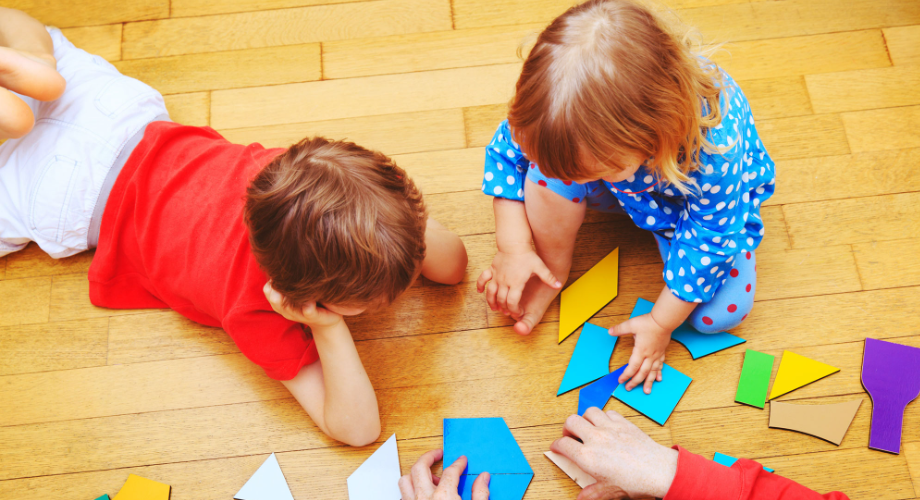The Power of Fun Math Games and Puzzles: Unlocking Mathematical Potential in Children
Mathematics often carries the stigma of being complex and challenging for many children. However, this doesn’t have to be the case. Introducing math through fun games and puzzles can transform a daunting subject into an enjoyable and accessible learning experience. These activities not only entertain but also nurture essential mathematical skills in children, making learning an exciting journey of discovery.
Table of Contents
ToggleGames and Puzzles
The Playful Path to Mathematical Proficiency
- Making Learning Enjoyable:
- By integrating games and puzzles into math education, children perceive learning as a playful adventure rather than a daunting task. Games stimulate their curiosity, making concepts more relatable and engaging.
- Developing Problem-Solving Skills:
Games and puzzles often require strategic thinking and problem-solving, essential skills in mathematics. Through these activities, children learn to analyze situations, devise strategies, and approach challenges creatively. - Enhancing Critical Thinking:
Encountering various puzzles and games prompts children to think critically. They learn to assess situations, apply logical reasoning, and make informed decisions, essential skills not only in math but also in life. - Applying Math in Real-Life Scenarios:
Many games and puzzles simulate real-life situations, providing practical applications for mathematical concepts. Whether it’s managing resources in a game or solving a puzzle, children learn to apply math in context.
Engaging Math Games and Puzzles
- Board Games:
Classics like Monopoly or Chess involve calculations, strategy, and critical thinking, fostering mathematical skills in a fun, social setting. - Math-Based Apps:
Interactive apps offer a myriad of games catering to various age groups. From basic arithmetic to complex problem-solving, these apps make math accessible anytime, anywhere. - Puzzle Challenges:
Sudoku, crosswords, and logic puzzles stimulate mental agility, logical reasoning, and pattern recognition, enhancing mathematical abilities subtly. - DIY Math Games:
Creating homemade games using cards, dice, or simple materials not only sparks creativity but also allows customization based on the child’s learning needs. 3. Enhancing Collaboration
and Social Skills:Many math games and puzzles involve teamwork and
interaction. Collaborative play fosters communication skills and the ability to
work with others, important attributes for success in both academic and social
settings.
Connecting Fun Math Games and Puzzles to Academic Success
1. Improved Engagement and Retention:
Engaging in enjoyable math activities increases children’s
interest and motivation to learn. When they enjoy the learning process, they
are more likely to retain information and concepts, leading to better academic
performance.
2. Building Confidence and Self-Efficacy:
Success in solving puzzles or mastering a math game boosts
children’s confidence in their mathematical abilities. This confidence spills
over into the classroom, encouraging them to tackle math problems with a
positive mindset.
3. Enhancing Collaboration and Social Skills:
Many math games and puzzles involve teamwork and
interaction. Collaborative play fosters communication skills and the ability to
work with others, important attributes for success in both academic and social
settings.
Parental Involvement and Support
1. Creating a Supportive Environment:
Parents can nurture mathematical skills by providing access
to math games and puzzles at home. Encouraging playtime with these activities
fosters a positive attitude towards math.
2. Engaging in Interactive Learning:
Playing math games together as a family not only strengthens
familial bonds but also shows children that math can be enjoyable and a part of
everyday life.
3. Recognizing Effort and Progress:
Acknowledging a child’s efforts in mastering puzzles or
improving math skills boosts their confidence and motivates further exploration
in the subject.
Conclusion
Fun math games and puzzles revolutionize the way children perceive mathematics. They transform a potentially intimidating subject into an exciting adventure, nurturing a love for learning and problem-solving. By integrating these activities into education, we empower children to embrace mathematics with confidence and enthusiasm, setting the stage for a lifetime of mathematical proficiency.
Essay writing is an essential skill that is required in various academic and professional endeavors. Whether you are a student, a researcher, or a professional, the ability to effectively express your thoughts and ideas in writing is crucial. While the thought of writing an essay may seem daunting to some, there are specific techniques and skills that can be learned and honed to make the process more manageable and rewarding. In this article, we will explore some valuable strategies to help you master the art of essay writing.

